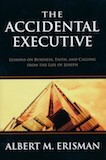Escaping Poverty for the Abundant Life
Blog / Produced by The High Calling
Kathy* strayed from the family plan. Instead of marrying a gentleman and a scholar, like her PhD parents had hoped, she betrothed herself to a regular ole Joe with a full, dark beard long before the days of Duck Dynasty.
I wasn’t privy to the full discussion, only the portions retold to me by my friend Kristin*, Kathy’s sister. I sat on top of the washing machine in our kitchen and laced my fingers through the black, twisty, plastic-coated phone cord. We often talked on the phone for hours at a time, and this new development added a rather mature element to our otherwise adolescent chats.
Her parents were most concerned that Kathy would enmesh herself into a “Poverty Culture,” never to return to the abundance their family enjoyed as a result of two careers in academia, a finely tuned financial plan, and a wise housing investment in suburbia. At least, that was my interpretation based on Kristin’s explanation. I had never heard of “Poverty Culture.”
In truth, I lived smack dab in the middle of my own “Poverty Culture.”
I wore non-Izod-collared shirts, non-red-tab non-Levi’s jeans, and a non-Members Only jacket. My generic, wanna-be clothes were either hand-me-downs from neighbors or sale items from a local discount store.
I wondered if Kristin’s parents knew that our roof leaked in the kitchen and the living room, and you had to be careful where you stepped in the bathroom so you didn’t fall through the linoleum-covered floor. If they found out, would they discourage their daughter from continuing our friendship?
It’s easy for a 14-year old girl to be critical of rigid parents who would deny their grown daughter a chance at true love. In reality, that’s not exactly how it played out.
My friend’s family expressed concern because they loved Kathy and wanted what was best for her. Ultimately, they let her make her own choice.
The bride wore a white lace wedding dress, the groom trimmed his beard, and at the end of a Presbyterian ceremony, the minister pronounced them man and wife.
Years passed and the couple had children of their own.
He couldn’t hold a steady job.
They struggled to make ends meet.
Increased stress led to decreased intimacy.
Eventually, they divorced.
Apparently the life experiences of those concerned parents had furnished them with wisdom that was simply inconceivable to a naïve fourteen year-old girl like me.
It’s been more than thirty years since I celebrated my fourteenth birthday, though “celebrate” might be too strong of a word. That day came and went with no party, no balloons, no streamers, and no presents.
There were no candles dripping hot wax on chocolate frosting,
Candles of any kind, along with bendy straws, bandaids, and fresh flowers, were all superfluous. That’s the way it was when you lived in a Poverty Culture.
Recently a friend mentioned a book she’s reading. In Developing a Wealth Mindset, author Danny Silk encourages readers to “accept God’s abundant provision” for their lives. Silk concludes that Our Father is King, and we can successfully steward his riches.
I listen with raised eyebrows. I tilt my head slightly to the left and hold the black wireless phone between my jaw and left shoulder. After a lengthy conversation, I place the phone back in the cradle.
Her words linger in the back of my mind briefly before confronting me head on.
Is abundance inherently good or evil? What does Jesus say about wealth and poverty? How does being a co-heir with Christ influence my thinking and my behavior about wealth and poverty? What beliefs have I conveyed, either intentionally or inadvertently, to our children about wealth and poverty? If God intends for us to live in abundance, why are people around the world in dire need? What are my responsibilities for stewardship?
I haven’t exactly formulated my personal theology on these matters. Instead, I answer questions with questions, and I’m left wondering, what if abundance is less about wealth and possessions and more about life and grace?
*Names have been changed to protect identities.
EDITOR'S NOTE: Most days at work or home or in my community, if things aren't going the way I plan, I operate under the assumption that if I just had MORE - more time, more resources, more staff, more energy - that I could do better. But what if, as Peter says in his second letter, we have been given everything we need for a godly life (2 Peter 1:3
Other Posts on Abundance:
- More than Enough: Giving out of Abundance by Dan King
- Escaping Poverty for the Abundant Life by Cheryl Smith
- Abundance in a World of Choices by David Rupert
- The High Calling of Abundance by Charity Singleton Craig
Cheryl Smith is a jeans and black turtleneck sort of girl who is passionate about worship, dark chocolate, and journals lined with colorful gel pen ink. She and her husband of six years are blending a family with four kids. Cheryl is a part-time Welcome Editor for The High Calling.
Image by Mike Bitzenhofer. Used with permission. Sourced via Flickr.





